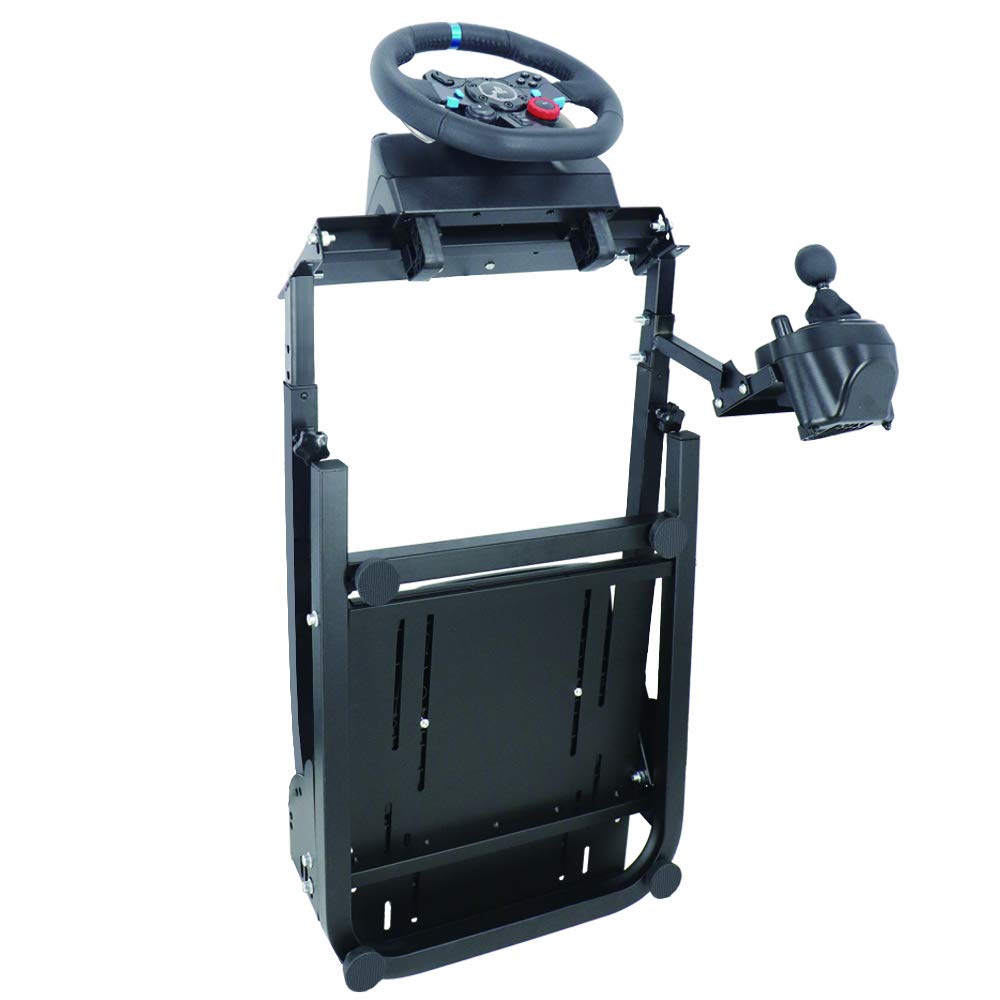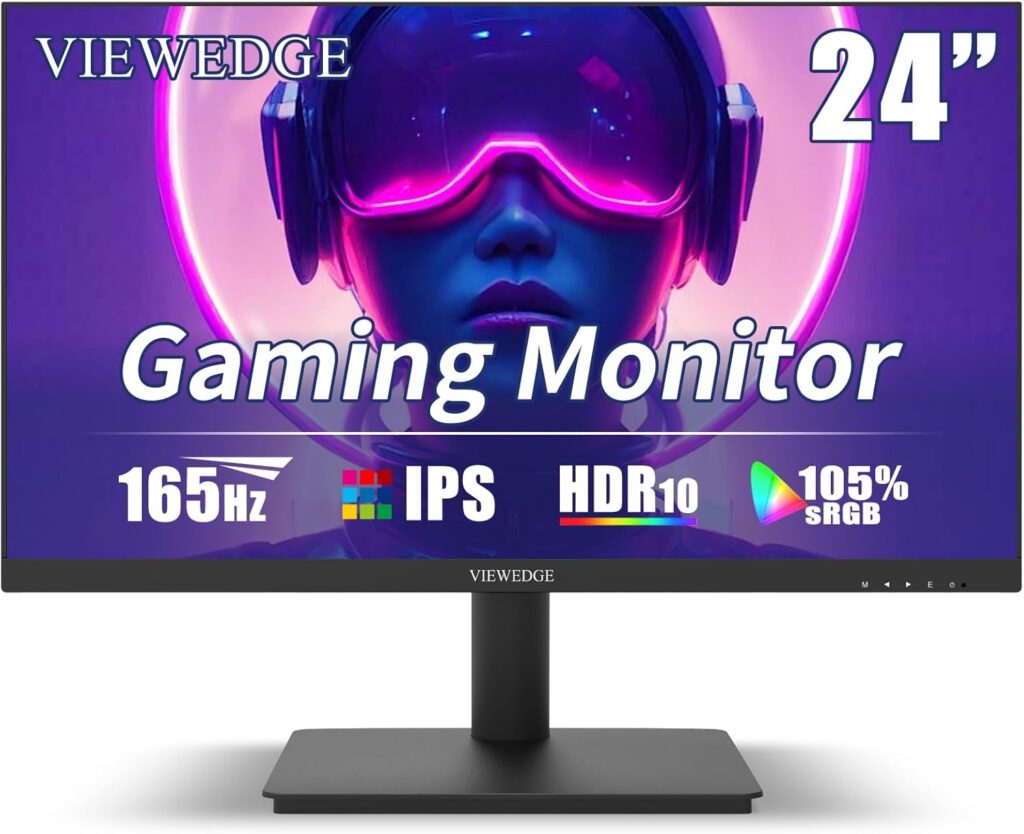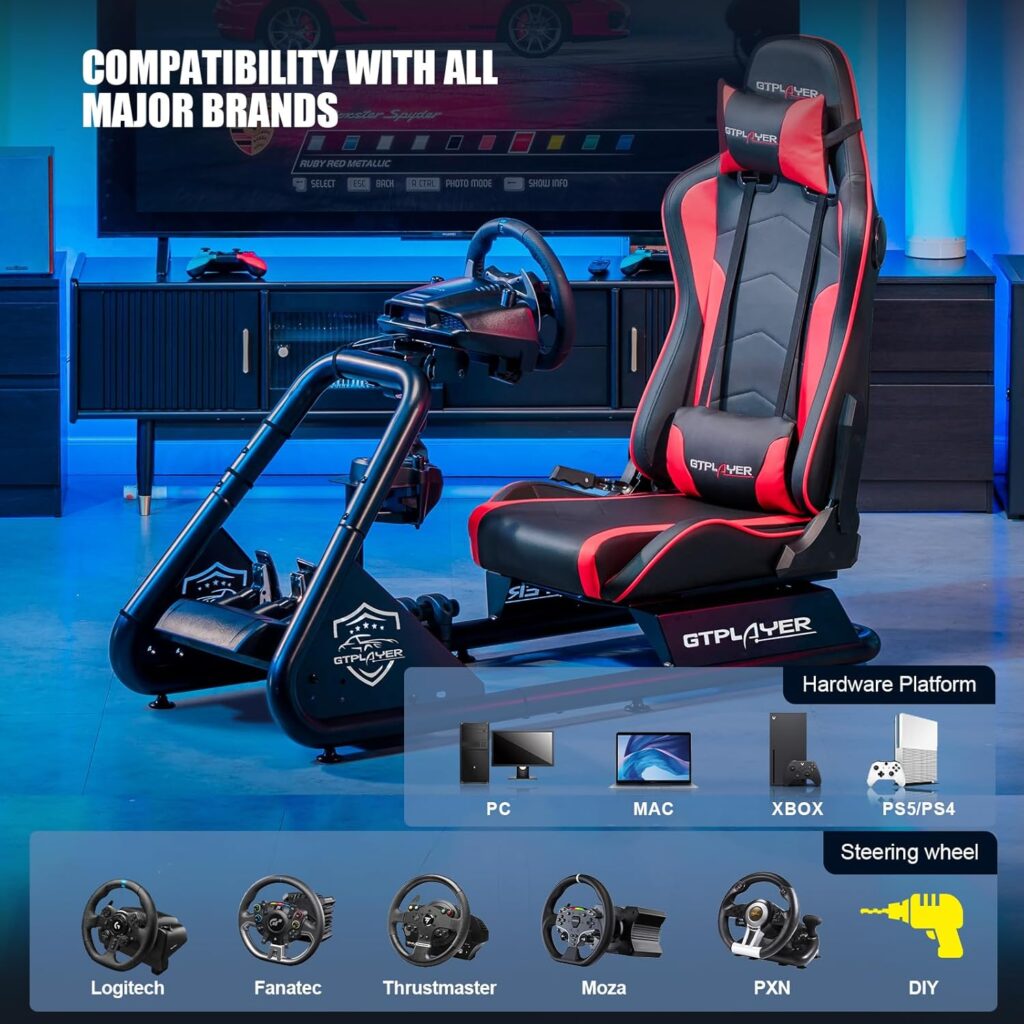Did you know that when it comes to sim racing, the choice between playing on a console or a PC can have a significant impact on your overall experience?
While both options offer their own set of advantages and disadvantages, it's important to weigh them carefully before making a decision.
From graphics and game selection to online multiplayer and customization options, there are various factors to consider.
So, if you're curious to find out more about the pros and cons of sim racing on a console versus a PC, keep reading to discover which option might suit you best.
Key Takeaways
- Console sim racing offers accessible and user-friendly experience, with powerful machines and stunning graphics.
- PC sim racing provides superior graphics and performance, with customization options for graphics settings and control setups.
- PC sim racing requires a higher upfront cost and technical expertise, but offers better performance and customization options in the long run.
- PC sim racing communities are known for their active engagement, modding capabilities, and customization options.
Console Sim Racing Pros
Console sim racing offers an accessible and user-friendly experience, allowing players to immerse themselves in the world of racing games with ease. With consoles like the PlayStation 5 and Xbox Series X, sim racing enthusiasts have powerful machines capable of delivering stunning graphics and smooth gameplay. Popular titles such as Gran Turismo 7 and Forza Motorsport 8 provide an immersive experience, allowing racers to feel like they're on the track.
One of the key components that enhance the console sim racing experience is the racing wheel. These peripherals provide a more realistic feel, allowing players to have precise control over their virtual vehicles. Recommended options for console sim racing include the Thrustmaster T248 Wheel and Pedals and the Thrustmaster TX. These peripherals are designed to replicate the sensations of real-life racing, giving racers a more authentic experience.
The console sim racing community is also thriving, with players from around the world competing and sharing their experiences. With its accessibility, user-friendly interface, and the availability of high-quality racing titles and peripherals, console sim racing is a great choice for both casual and competitive racers alike.
Console Sim Racing Cons
While console sim racing offers many advantages, there are also some drawbacks to consider.
One of the main limitations of console sim racing is the limited options for customization and modding compared to PC sim racing. PC sim racing enthusiasts have the freedom to modify and customize their sim racing equipment and software to suit their preferences, whereas console users are restricted to the options provided by the console manufacturer.
Another downside is that consoles may lack compatibility with certain high-end sim racing peripherals. This can be a significant drawback for dedicated sim racers who want to invest in specialized equipment for an immersive racing experience.
Additionally, console users may have restricted access to certain simulation titles and modding capabilities that are more readily available on PC. Furthermore, console sim racing games often have limited performance and graphics settings customization options compared to their PC counterparts. This can be frustrating for players who want to fine-tune their gaming experience for optimal performance.
Lastly, consoles may have limitations in terms of future upgrades and hardware expansion for sim racing. Unlike PCs, which allow users to upgrade their graphics card or other hardware components, consoles typically have fixed hardware configurations that can't be easily modified.
PC Sim Racing Pros
When it comes to PC sim racing, there are several pros that make it a compelling choice. One of the key advantages is the graphics and performance. PC gaming rigs can offer superior visual fidelity and higher frame rates, allowing for a more immersive racing experience.
Additionally, PC sim racing provides a wide range of customization options, from adjusting graphics settings to tweaking control setups, allowing you to tailor the game to your preferences and optimize performance.
Graphics and Performance
PC sim racing offers a superior visual experience and enhanced performance due to its ability to customize hardware and keep up with advancing graphics technology. The flexibility of PC allows for potential upgrades to meet high-demanding visual requirements, ensuring top-notch graphics and performance for sim racing.
With PC sim racing, you can expect smoother and more consistent framerates, contributing to a more immersive and realistic racing experience. High-end PC setups can support advanced visual features like ray tracing, higher resolution, and ultra-wide monitors, enhancing the overall graphical fidelity of sim racing games.
Additionally, the potential for virtual reality integration on PC provides an unparalleled level of immersion, taking the visual experience of sim racing to the next level.
Customization Options
With extensive customization options for rigs and peripherals, PC sim racing allows players to tailor their setup to their preferences. Here are four reasons why PC sim racing provides superior customization options compared to console sim racing:
- Wide range of sim racing peripherals: PC sim racers have access to a vast selection of high-quality sim racing wheels, pedal sets, and shifters. This allows players to choose the peripherals that best suit their racing style and preferences.
- Modding capabilities: PC sim racing offers the ability to mod and tweak various aspects of the game, including physics, tracks, and cars. This level of customization provides a high degree of control and allows players to create their own unique racing experience.
- Enhanced visual immersion: PC sim racing supports multiple monitors, ultra-wide screens, and virtual reality headsets. These options provide a more immersive and expansive field of view, enhancing the overall racing experience.
- Online communities and custom software: PC sim racing has a strong online community where players can share mods, setups, and tips. Additionally, custom software manipulation and compatibility with various USB components give PC sim racers more freedom and flexibility in creating their ideal racing setup.
PC Sim Racing Cons
When considering PC sim racing, there are several cons to keep in mind. Firstly, limited hardware compatibility can be a drawback, as certain peripherals may not work seamlessly with a PC setup.
Additionally, the higher upfront cost of investing in a PC for sim racing can be a deterrent for some.
Lastly, technical expertise is often required to set up and maintain a PC for optimal performance, which may pose a challenge for beginners.
Limited Hardware Compatibility
Limited hardware compatibility in PC sim racing can present challenges and limitations with certain peripherals, such as wheels and pedals. Here are four key points to consider regarding this issue:
- High-end sim racing peripherals may not be fully compatible with all PC setups. This can result in reduced functionality and performance limitations, potentially impacting the overall gaming experience.
- Upgrading or changing hardware components in a PC sim racing setup can be more complex compared to consoles. Troubleshooting and additional configuration may be required to ensure compatibility, which can be time-consuming and frustrating for some users.
- Compatibility with older or niche peripherals may be limited in PC sim racing setups. This can restrict the range of options available to players and may require them to invest in new peripherals that are compatible with their system.
- Limited hardware compatibility in PC sim racing often necessitates additional research and troubleshooting. Users may need to consult forums, guides, or contact customer support to ensure a smooth and optimal setup.
Considering these factors, it becomes clear that limited hardware compatibility in PC sim racing can pose challenges and potentially limit the choices available to players.
Higher Upfront Cost
PC sim racing comes with a higher upfront cost due to the need for a powerful computer system and additional peripherals. To fully immerse yourself in the world of sim racing on a PC, you'll need a gaming PC capable of handling the demanding graphics and processing requirements. This means investing in a high-quality graphics card, CPU, and other components.
Additionally, building a dedicated sim racing rig can further add to the overall cost. Upgrading PC components for better performance can also increase the initial investment.
While the upfront cost may be higher compared to console sim racing, PC sim racing offers better performance and customization options in the long run. So, if you're looking for the ultimate sim racing experience, be prepared to invest in a powerful PC setup.
Technical Expertise Required
Understanding the intricacies of hardware compatibility, driver updates, and system tweaks is crucial for optimizing your PC sim racing experience. While PC sim racing offers a plethora of customization options and advanced graphics, it also requires technical expertise to set up and maintain.
Here are four reasons why technical expertise is required for PC sim racing:
- Setup complexity: Configuring a PC for sim racing involves selecting compatible components, installing drivers, and adjusting settings to ensure smooth performance. This process can be daunting for beginners.
- Troubleshooting challenges: When technical issues arise, PC sim racers may need to delve into system settings, update drivers, or resolve conflicts. This troubleshooting process can be time-consuming and frustrating.
- Hardware upgrades: To stay competitive in the ever-evolving world of sim racing, PC enthusiasts often need to upgrade their hardware. This requires knowledge of the latest technology and compatibility considerations.
- Software updates: PC sim racers must stay informed about software updates and patches to ensure optimal performance and compatibility with the latest racing titles.
While PC sim racing offers unparalleled customization and visual fidelity, it requires a certain level of technical expertise to navigate the complexities associated with hardware and software configurations.
Graphics and Visuals Comparison
When it comes to comparing the graphics and visuals of sim racing on consoles and PC, there are distinct differences and considerations to keep in mind. PC setups have the upper hand in terms of graphics and visuals, offering superior capabilities compared to consoles. With the potential for higher resolutions and frame rates, PC sim racing can provide a more visually immersive experience. Advanced graphics settings, such as higher levels of detail, texture quality, and anti-aliasing, further enhance the visual fidelity on PC. On the other hand, consoles like the Xbox Series and PlayStation 5 have their own strengths. While they may not match the graphical capabilities of high-end PC setups, consoles often provide more consistent performance and optimization for specific racing titles. This leads to a smoother visual experience and eliminates the need for players to tweak graphics settings themselves. To summarize the comparison, we can use the following table:
| Graphics and Visuals Comparison |
|---|
| PC Setups |
| – Superior graphics and visuals |
| – Higher resolutions and frame rates |
| – Advanced graphics settings |
| Consoles (Xbox Series, PlayStation 5) |
| – More consistent performance and optimization |
| – Smoother visual experience |
| – Plug-and-play simplicity |
Both PC and consoles continue to improve in terms of graphics and visuals, with each platform having its own strengths and trade-offs. Ultimately, it comes down to personal preference and priorities when choosing the right platform for sim racing.
Controller and Input Options
When it comes to controller and input options for sim racing, consoles have certain limitations compared to PCs. While consoles offer the convenience of using a controller, they lack the versatility and customization options of PC setups.
On the other hand, PC provides a wider range of high-end sim racing peripherals and allows for more specialized input experiences, such as racing wheels and pedals.
Ultimately, the choice between console and PC for sim racing depends on your preference for convenience or customization.
Console Controller Limitations
Console controllers have inherent limitations that can impact the precision and control necessary for an immersive sim racing experience. These limitations include:
- Limited input options: Console controllers often have fewer buttons and controls compared to dedicated racing wheels and pedals. This can restrict the level of customization and fine-tuning that sim racers require for optimal performance.
- Lack of force feedback: Force feedback is crucial for simulating the feeling of a real-life racing experience. However, console controllers generally lack this feature, leading to a less immersive racing experience.
- Limited range of motion: Console controllers have a limited range of motion compared to dedicated racing peripherals. This can limit the ability to make precise and subtle movements, affecting the overall control and responsiveness in sim racing games.
- Lack of support for advanced peripherals: Some console racing games may not fully support the use of advanced peripherals, such as high-end racing wheels and pedals. This can limit the experience for serious sim racers who rely on these peripherals for a more realistic racing experience.
When it comes to sim racing, using a gaming PC with dedicated racing peripherals can provide a more immersive and precise racing experience compared to using a console controller.
PC Input Versatility
PC input versatility offers a wide range of controller and input options for a more customizable and immersive sim racing experience. Unlike consoles, PCs provide diverse input options such as controllers, wheels, pedals, and custom-built rigs specifically designed for sim racing setups. This flexibility allows you to personalize your racing journey according to your preferences.
PC sim racing enthusiasts have access to various high-quality peripherals, offering a wide range of options to enhance gameplay. The seamless integration of different controllers and peripherals caters to a wider audience, ensuring that everyone can find the perfect setup for their needs.
With PC input versatility, you can easily customize your sim racing experience by choosing from different input options, providing adaptability and a personalized gaming experience.
Game Selection and Updates
Game selection and updates play a crucial role in determining the variety and realism of experiences available in sim racing. When it comes to game selection and updates, there are pros and cons to consider for both console and PC sim racing.
Here are four key points to consider:
- PC offers a wider range of sim racing titles: PC gaming provides a vast library of sim racing games, giving you more options to choose from. This allows you to find the perfect game that aligns with your preferences and offers the most realistic experience.
- Regular updates and new releases: Both console and PC sim racing games receive regular updates and new releases. These updates can enhance gameplay, fix bugs, and introduce new features, ensuring that the gaming experience remains fresh and enjoyable.
- Console sim racing games cater to a diverse audience: Popular console sim racing games like Gran Turismo and Forza Motorsport receive regular updates and new releases, catering to a diverse audience. These games often include a wide range of cars, tracks, and gameplay modes, providing something for everyone.
- Research and compare game selection and update frequency: To find the best fit for your sim racing preferences, it's essential to research and compare the game selection and update frequency on both console and PC platforms. This will help you make an informed decision on which platform can provide the most satisfying sim racing experience for you.
Online Multiplayer Experience
The online multiplayer experience in sim racing offers a dynamic and interactive environment where players can engage in real-time races against others, fostering competition and a sense of community. Whether you choose to play on a console or PC, the online multiplayer experience in sim racing has its own set of pros and cons.
One of the advantages of online multiplayer in sim racing is the range of sim racing setups available. Both consoles and PCs offer a variety of racing wheels, pedals, and other peripherals that can enhance the immersion and realism of the racing experience. Additionally, online multiplayer racing allows you to compete against players from around the world, exposing you to different driving styles and strategies that can help improve your skills.
However, there are also disadvantages to consider. One drawback of online multiplayer on consoles is the limited number of players in a single race. Most console games have a maximum player count of around 16, which can limit the intensity and excitement of larger-scale races. On the other hand, PC sim racing games often have dedicated servers that can accommodate more players, allowing for larger and more competitive races.
Cost and Affordability
When considering the cost and affordability of sim racing, it's important to note that console setups generally have a lower upfront cost compared to PC setups. This makes console sim racing more accessible and affordable for those who are just getting started or don't want to invest too much money into their setup.
Here are some key points to consider:
- Lower upfront cost: Console sim racing typically requires the purchase of a gaming console, racing games, and compatible peripherals such as a racing wheel. These costs are generally lower compared to building a high-end gaming PC for sim racing.
- User-friendly and plug-and-play: Console sim racing setups are often more user-friendly and plug-and-play, meaning you can start racing without the need for additional technical knowledge or investment in hardware upgrades.
- Expensive PC requirements: Building a high-performance gaming PC for sim racing can be more expensive due to the need for powerful hardware and peripherals. This can significantly increase the overall cost of getting started with PC sim racing.
- Customization and upgrade options: While PC sim racing offers greater customization and upgrade options, these additional features come with a higher cost. Upgrading components or peripherals over time can add up, especially if you want to keep up with the latest advancements in sim racing technology.
Ultimately, the cost and affordability of sim racing depend on your budget and preferences. Console setups are a more cost-effective option for beginners or those who want to enjoy sim racing without spending too much money upfront. However, if you're willing to invest in a high-performance PC and are interested in the customization and upgrade options it offers, PC sim racing may be worth considering in the long run.
Customization and Modding Options
Considering the cost and affordability of sim racing, it is important to acknowledge that customization and modding options play a significant role in distinguishing between console and PC setups. When it comes to sim racing on a console versus a PC, the level of customization and modding options available can greatly impact the overall sim racing experience. PC sim racing games often offer extensive support for mods, allowing players to add new cars, tracks, and gameplay features. On the other hand, consoles may have limited or no support for modding, which restricts customization options.
The following table highlights the key differences between customization and modding options on console and PC setups:
| Console | PC | |
|---|---|---|
| Customization | Limited | Extensive |
| Modding Support | Limited/None | Extensive |
| Community Engagement | Limited | Active |
As the table shows, PC sim racing setups offer a much wider range of customization and modding options compared to consoles. PC sim racing communities are known for their active engagement in creating and sharing mods, which enhances the overall gaming experience. Modding allows players to tailor their sim racing experience to their preferences, offering more variety and personalization. While consoles may provide a more streamlined and user-friendly experience, PC sim racing setups offer the flexibility and freedom to truly make the game your own.
Frequently Asked Questions
Are Racing Games Better on PC or Console?
When it comes to racing games, the PC offers some advantages over consoles.
The graphics on a high-end gaming PC are often superior to what consoles can produce.
PC also provides more controller options, including steering wheels and pedals for a more immersive experience.
The modding community is also more active on PC, allowing for additional content and customization.
In terms of online multiplayer, PC generally offers a more robust and satisfying experience.
However, PC gaming can be more expensive and have higher system requirements compared to consoles.
What Are the Pros and Cons of PC Vs Console?
When comparing PC and console for sim racing, it's important to consider the pros and cons.
PCs offer better performance and graphics quality, as well as a wider range of controller options. However, PCs can be more expensive and require technical knowledge.
On the other hand, consoles provide a more accessible and user-friendly experience, with popular titles and powerful hardware. However, they lack customization options and may not match the performance of high-end PCs.
Game availability and multiplayer experience can vary between the two platforms.
Is CPU or GPU More Important for Sim Racing?
When it comes to sim racing, both CPU and GPU performance are important factors. The CPU handles AI, physics calculations, and game logic, while the GPU is responsible for rendering graphics and maintaining smooth frame rates.
A powerful CPU ensures accurate simulations, while a capable GPU provides visually stunning graphics. Additionally, the choice between console and PC can impact customization options, input lag, multiplayer experience, and cost.
Consider your specific needs and preferences to make an informed decision.
What Is the Best Platform for Racing Games?
When it comes to racing games, you may wonder which platform is the best for you. Consider factors like the controller versus wheel debate, graphics and performance, modding and customization options, the online multiplayer community, cost and accessibility, exclusive titles, and support for VR technology.
Conclusion
In conclusion, whether you choose console or PC sim racing, both options have their pros and cons.
Console sim racing offers convenience and affordability. With consoles, you can simply plug in your racing game and start playing. There's no need to worry about compatibility issues or system requirements. Additionally, consoles tend to be more affordable than high-end gaming PCs, making them a budget-friendly option for sim racing enthusiasts.
On the other hand, PC sim racing provides better graphics and customization options. Gaming PCs are known for their superior processing power, which allows for more realistic graphics and smoother gameplay. Furthermore, PC gamers have access to a wide range of customization options, such as modding and tweaking game settings, to enhance their sim racing experience.
Ultimately, the decision comes down to personal preference and budget. Some people may prioritize convenience and affordability, making console sim racing the ideal choice for them. Others may value top-notch graphics and customization capabilities, leading them to opt for PC sim racing.
No matter which platform you choose, the world of sim racing offers an exciting and immersive experience. So, strap in, grab your controller or keyboard, and get ready to embark on a thrilling virtual racing experience that will leave you feeling like you're flying at warp speed!




